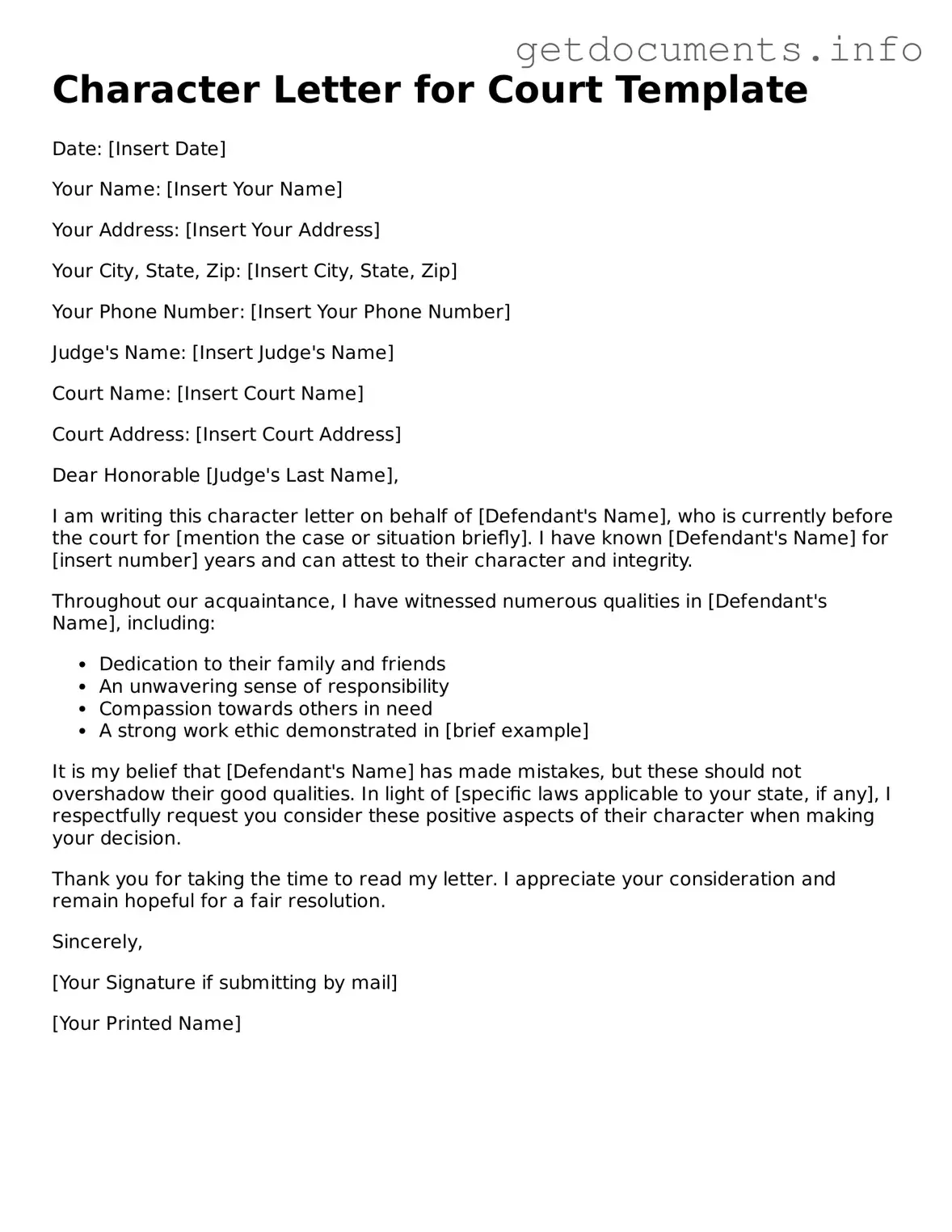Printable Character Letter for Court Document
The Character Letter for Court is a document that individuals submit to provide personal insights into a defendant's character during legal proceedings. This letter can help influence a judge's perception and decision-making. Understanding how to effectively fill out this form is crucial for those looking to advocate on behalf of someone facing legal challenges.
For more information and to get started, click the button below to fill out the form.
Access Character Letter for Court Editor

Printable Character Letter for Court Document
Access Character Letter for Court Editor
Got places to be? Complete the form fast
Fill out Character Letter for Court online and avoid printing or scanning.
Access Character Letter for Court Editor
or
⇩ PDF File
